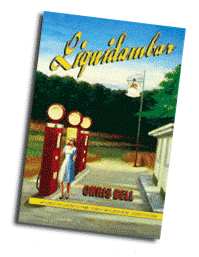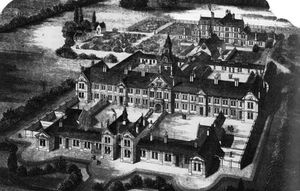- Some details on her life:
 Edward Hopper was born on 22 July 1882 and died on 15 May 1967.He was American realist painter and print maker.It was most popularly for his oil paintings, he was proficient as a watercolorist. He spanked his urban and rural scenes. He's the best-known American realist of the inter-war period, once said: " The man man's the the work.
Edward Hopper was born on 22 July 1882 and died on 15 May 1967.He was American realist painter and print maker.It was most popularly for his oil paintings, he was proficient as a watercolorist. He spanked his urban and rural scenes. He's the best-known American realist of the inter-war period, once said: " The man man's the the work.
- Some details on her paintings:
Edward Hopper paints American landscapes and cityscapes, expressing the world around him as a chilling, putting and often vacuous place.
Everybody in a Hopper picture appears terribly alone. Hopper wins a reputation as the artist who gave to its boards the solitude and of boredom of life.
- Interior scenes
- Street scenes
- Landscapes
1. Influence on painting
Hopper's influence on the art world and pop culture is obvious. Though he had no formal students, many artists have cited him as an influence, including Willem de Kooning, Jim Dine, and Mark Rothko. An illustration of Hopper’s influence is Rothko’s early work Composition I (1931).
2. Influence on the cinema

Hopper's cinematic compositions and dramatic uses the dramatic for light and dark. For example, "House by the Railroad" influenced the iconic house in the Alfred Hitchcock film "Psycho". The same board influenced on the home in the Terrence Malick film Days of Heaven. His 1997 film The End of Violence incorporates a tableau vivant of Nighthawks, recreated by actors. Noted surrealist horror film director Dario Argento went so far as to recreate the diner and the patrons in Nighthawks as part of a set for his 1976 film Deep Red (aka Profondo Rosso). Ridley Scott has cited the same painting as a visual inspiration for Blade Runner. To establish the lighting of scenes in the 2002 film Road to Perdition, director Sam Mendes drew from the paintings of Hopper as a source of inspiration, particularly New York Movie.
"House by the Railroad" inspired for American film “Psycho”

3. Influence on the
books
Twelve chapter in the novel of 2004 of the New Zealander Chris Bell " Liquidambar " is interpreted one of the paints(paintings) of Hopper to create a surrealist police novel.
- Edward Hopper 2009 Wall Calendar:

 La maison de correction (des maisons de correction pluriel) En Grande-Bretagne, en le dix-septième à de dix-neuvièmes siècles, une maison de correction était un endroit(une place) où le très pauvre(faible) peuple(gens) pourrait vivre et faire des emplois(travaux) désagréables en échange de l'alimentation. L'utilisation du peuple(de gens) la maison de correction pour se référer en ces endroits(places) en général. Le =0n-compte (=poorhouse) ... une lutte Shropshire la famille qui a vécu dans la crainte de la maison de correction.
La maison de correction (des maisons de correction pluriel) En Grande-Bretagne, en le dix-septième à de dix-neuvièmes siècles, une maison de correction était un endroit(une place) où le très pauvre(faible) peuple(gens) pourrait vivre et faire des emplois(travaux) désagréables en échange de l'alimentation. L'utilisation du peuple(de gens) la maison de correction pour se référer en ces endroits(places) en général. Le =0n-compte (=poorhouse) ... une lutte Shropshire la famille qui a vécu dans la crainte de la maison de correction. 




 Edward Hopper was born on 22 July 1882 and died on 15 May 1967.He was American realist painter and print maker.It was most popularly for his oil paintings, he was proficient as a watercolorist. He spanked his urban and rural scenes. He's the best-known American realist of the inter-war period, once said: " The man man's the the work.
Edward Hopper was born on 22 July 1882 and died on 15 May 1967.He was American realist painter and print maker.It was most popularly for his oil paintings, he was proficient as a watercolorist. He spanked his urban and rural scenes. He's the best-known American realist of the inter-war period, once said: " The man man's the the work. 



/https%3A%2F%2Fprofilepics.canalblog.com%2Fprofilepics%2F4%2F8%2F487309.jpg)